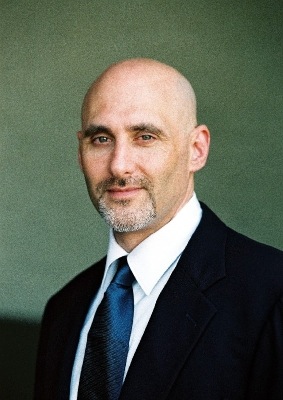The New York Times profiles president of production at Warners, Jeff Robinov, painting him as the heir apparent to Alan Horn as he finds new ways to do business at the studio. The piece looks at his recent takeover of DC’s operations:
Driven by its need to replace Harry Potter, not to mention the continued appeal of superheroes, Warner recently announced a major reorganization of DC Comics. The goal is to quickly and more fully exploit its characters, something Time Warner’s corporate bureaucracy has hampered in the past.
The Walt Disney Company’s $4 billion purchase of Marvel Entertainment just over a month ago has increased the pressure on Warner to succeed this time. Warner is expected to announce a DC slate in the coming months populated by characters like the Flash and Wonder Woman.
Central to Mr. Robinov’s approach to DC is to avoid cookie-cutter representations and take risks when it comes to hiring directors and choosing a cast. Fully backing a filmmaker’s vision has become a hallmark of his style, ranging from the odd “Watchmen,” which was a modest success, to the candy-colored “Speed Racer,” which was a flaming disaster, to “The Dark Knight,” a home run.
“He is trying not to cling to the things that have worked in the past,” said Christopher Nolan, who directed “The Dark Knight” and is working on another Batman sequel.
Also mentioned is Robinov’s hands-on style of being the kind of boss whose name you hate to see come up on the phone:
In a knife-in-the-back industry, Mr. Robinov is known for wielding a blade in the front, something that has resulted in more than a few wounded egos. “As an agent, all I wanted was an answer,” Mr. Robinov said of his blunt style. “Sometimes it’s a hard message to hear and sometimes it’s a hard one to give.”
While DC kremlinologists previously had to closely inspect Paul Levitz’s trash basket to get an idea of what was going on, Robinov may be the new man to scrutinize. He’s certainly taken quite an interest in DC’s doings — reportedly back in the fall, Robinov himself sat in on a number of meetings where DC’s current top brass had to explain just what it was they did.







5 months is not really a long time to fill a role in the corporate world. It makes the work day much harder for everyone else, but companies don’t seem to mind that.
And someone needs to do a major purging of DC. I think they’d make just as much money, if not more, by sending all the creative work overseas and reducing the number of books they publish each month. I think they also have to refocus on licensing with an eye toward video games. There’s money to be made with DC, just not in the comics.
I’m going to lift one of my favorite lines from Sportsnight:
“Anybody who can’t make money off of DC Comics should get out of the money-making business.”
It’s easy to make money WITH DC Comics, via lisencing and films. But making money AT DC Comics may be another matter.
Levitz often reminded WB that DC was basically a place that thought up ideas for the other branches of WB to use and exploit (not meant negatively). So DC rather got left alone, as long as it didn’t actively lose money.
But if Warners tries to find ways for the comics company to make more money in and of themselves…well, that could be either good or bad, depending on what they think up as ideas. Digital comics? Good for readers, potentially bad for the LCS. New bold “cool” directions for the books and characters? Total crap shoot, but odds leaning towards “stuff current fans won’t like”.
There’s every possibility that as time goes on, people will realize exactly how good a job Paul was doing.
The entire problem with the idea that DC was an ‘ideas shop that WB could use’ was that WB BARELY used them for ideas during Levitz’ tenure. Sure, a couple of Batman movies somehow escaped the hothouse and did well; but on the whole, the Vertigo imprint has made more cinematic impressions overall. Otherwise, DC licenses kept heading for the small screen with animated fare and SMALLVILLE. So I think Robinov was right to shuffle the deck chairs, although the wait for a new publisher does seem to be taking a toll on the vitality of DC’s main product line (that is, comics). And of course, Robinov’s reasoning is purely from a dollars and cents standpoint, so it’s possible that DC may eventually just become a character license warehouse for other media in the near future.
Robinov’s management style is one that executive stars have used in the past. When star talent is hired, let them use their talent. If an executive can’t explain concisely what his job is, that job probably isn’t necessary. His style does require that good people be in place eventually, or he’ll lose time correcting their mistakes.
SRS
“5 months is not really a long time to fill a role in the corporate world.”
The efficiencies of the free market at work. Good to know they’re even worse than govt. ( Except for Republicans who love to stop Democrats nominating anyone purely on principle )
I’d hate to be a stockholder, I mean that’s close to two quarters now with no one in a position. Who’s making my money? This tells me Warner Bros are operating as business as usual. Slooooowly and inefficiently.